Oct 28, 2025 10:47 AM
In Memoriam: Jack DeJohnette, 1942–2025
Jack DeJohnette, a bold and resourceful drummer and NEA Jazz Master who forged a unique vocabulary on the kit over his…
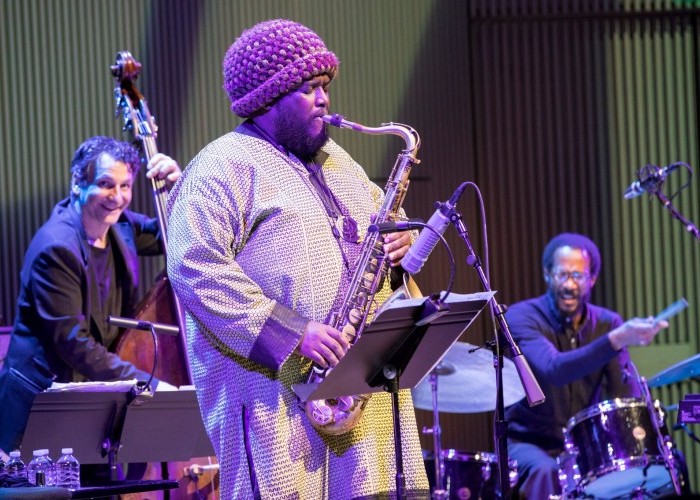
Kamasi Washington performs Saturday at SFJAZZ with bassist John Patitucci, drummer Brian Blade and pianist Danilo Pérez during a celebration of Wayne Shorter.
(Photo: Scott Chernis)At the top of Saturday night’s Wayne Shorter Legacy Celebration in San Francisco, Randall Kline, artistic and executive director of SFJAZZ, discussed the saxophonist’s relationship with the organization and specifically his ties to the creation of the venue itself.
“SFJAZZ was literally built on his generosity, work and creativity. We wouldn’t be here without Wayne Shorter,” said Kline, who’d originally booked the composer and his quartet for a four-night stand; Shorter fell ill a week after he was awarded the Kennedy Center Honor in December. The engagement, instead, was transformed into an all-star tribute at the suggestion of Shorter’s close friend and longtime collaborator Herbie Hancock.
“Herbie led the way on it,” said Kline. And on just two weeks notice, Hancock, Joshua Redman, Terence Blanchard, Branford Marsalis, Ambrose Akinmusire, Kamasi Washington and Terrace Martin all rallied Jan. 3-6 to pay tribute to a legend.
For the third date in the series, on the first Saturday night of the new year, it was Washington and Martin, two leading lights of L.A.’s scene, who demonstrated Shorter’s defiance of genre and trends, as well as his firm hold on the composition of a music that bends toward the arc of timeless sound.
Drawing mostly from Shorter’s ’60s repertoire (“Footprints,” “Juju,” “Masqualero”), Washington and Martin not only paid tribute and respect to his legacy, they offered great feeling and humility during a set that transcended time and space, and simply stood in the moment. Meanwhile, Shorter’s regular ensemble effectively and intuitively ran itself, though was essentially led that evening by Danilo Pérez on piano and keyboards, with John Patitucci on bass and Brian Blade on drums. They provided a heartbeat and a mastery to the proceedings, handed down directly from Shorter.
“Masqualero,” originally recorded for the 1967 Miles Davis album The Sorcerer, clearly belonged to the troupe onstage, as Blade’s light touch bounced off Pérez’s keyboard dynamics and Paitucci’s steady upright bass. But it was in his absence that Shorter’s classic early compositions demonstrated their pliability and suitability for jazz’s next incarnation. Interestingly, Washington and Martin’s stature as artists who straddle genres and appeal to audiences outside jazz were a natural fit for the sounds Shorter originally forged with Hancock. The evening might have proven historic as a sort of symbolic torch-passing.
With unrestrained delight, the audience greeted Washington and his tenor saxophone to the stage. Offering a sound that was both classic and modern, Washington’s voicing was especially fluid during the extended takes of “Infant Eyes” and “Fall,” two early Shorter pieces that seemed to please the quartet themselves as they ran through the changes. Martin, too, proved completely at ease with Shorter’s earliest material. Laying back on alto throughout most of the set, when he sat down at at his bank of keyboards for some final jams, his light shined most directly. It was Washington’s turn to lay back, as Martin dug into “Footprints,” uploaded with a retro sound, and engaged in some heavy keyboard dialog with Pérez.
The players clearly all had a great time onstage (it seemed there was more post-number embracing and fist bumping than average), and the audience stamped their approval over and over again, ultimately by standing and calling for an encore. Returning for a thrilling take on Weather Report’s “Palladium,” from the now-classic 1977 Heavy Weather, there literally were gasps from the crowd at its opening notes. As Martin and Washington took it to the next phase, “Palladium” proved itself to be in synch with contemporary mores 40 years after its initial conception. By the end of the piece, Pérez had the audience whistling and singing along until the final bow and exit.
The extraordinary exchange and display of love among the assembled musicians and their interplay with the audience was not only visible, but palpable. In his lifelong pursuit of waging harmony through music, Shorter’s contribution to the genre is undeniable, even as he rests at home, awaiting his next chapter.
According to reported remarks made by Hancock on opening night, Shorter is expected to regain health and return to the stage. SFJAZZ’s Kline said the saxophonist and composer is well enough to “make commentary from the sidelines,” but there were no additional details available on his health. DB
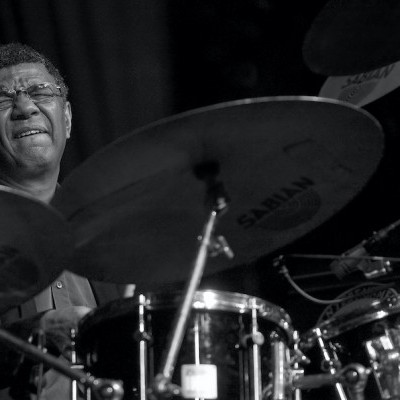
Jack DeJohnette boasted a musical resume that was as long as it was fearsome.
Oct 28, 2025 10:47 AM
Jack DeJohnette, a bold and resourceful drummer and NEA Jazz Master who forged a unique vocabulary on the kit over his…
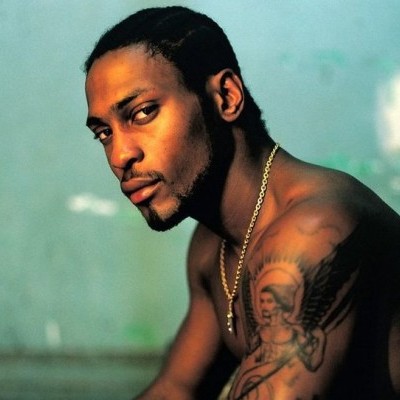
D’Angelo achieved commercial and critical success experimenting with a fusion of jazz, funk, soul, R&B and hip-hop.
Oct 14, 2025 1:47 PM
D’Angelo, a Grammy-winning R&B and neo-soul singer, guitarist and pianist who exerted a profound influence on 21st…
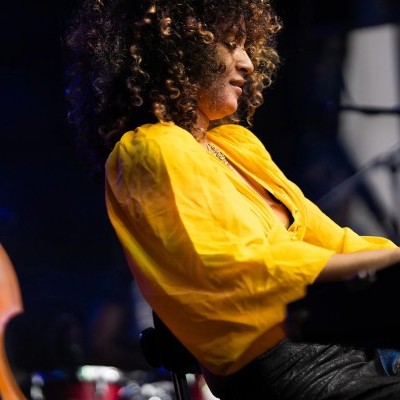
Kandace Springs channeled Shirley Horn’s deliberate phrasing and sublime self-accompaniment during her set at this year’s Pittsburgh International Jazz Festival.
Sep 30, 2025 12:28 PM
Janis Burley, the Pittsburgh International Jazz Festival’s founder and artistic director, did not, as might be…
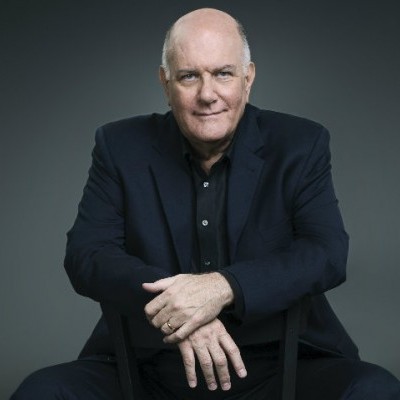
Jim McNeely’s singular body of work had a profound and lasting influence on many of today’s top jazz composers in the U.S. and in Europe.
Oct 7, 2025 3:40 PM
Pianist Jim McNeely, one of the most distinguished large ensemble jazz composers of his generation, died Sept. 26 at…
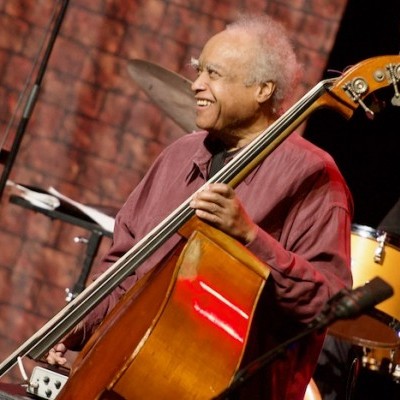
Drummond was cherished by generations of mainstream jazz listeners and bandleaders for his authoritative tonal presence, a defining quality of his style most apparent when he played his instrument unamplified.
Nov 4, 2025 11:39 AM
Ray Drummond, a first-call bassist who appeared on hundreds of albums as a sideman for some of the top names in jazz…